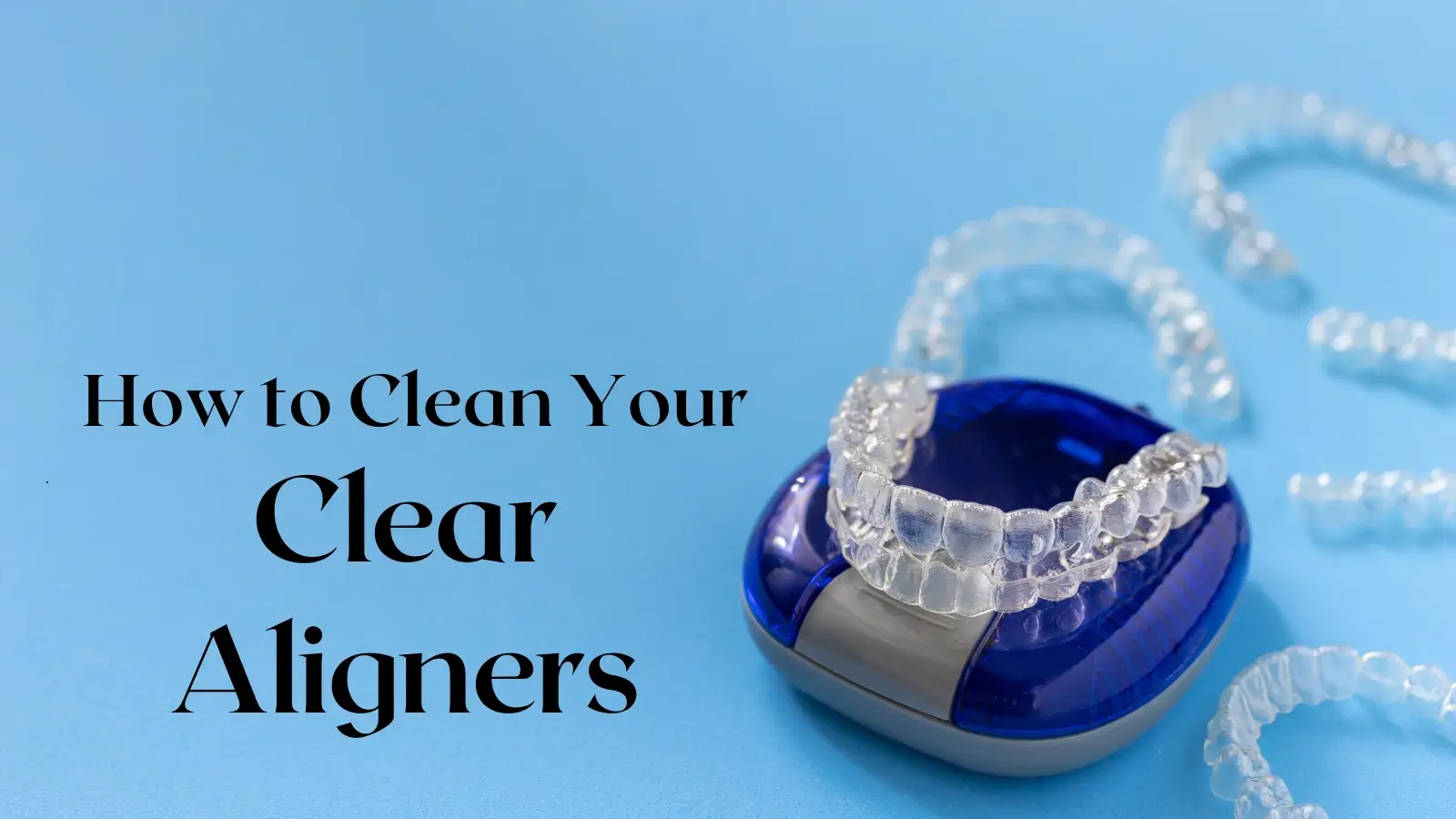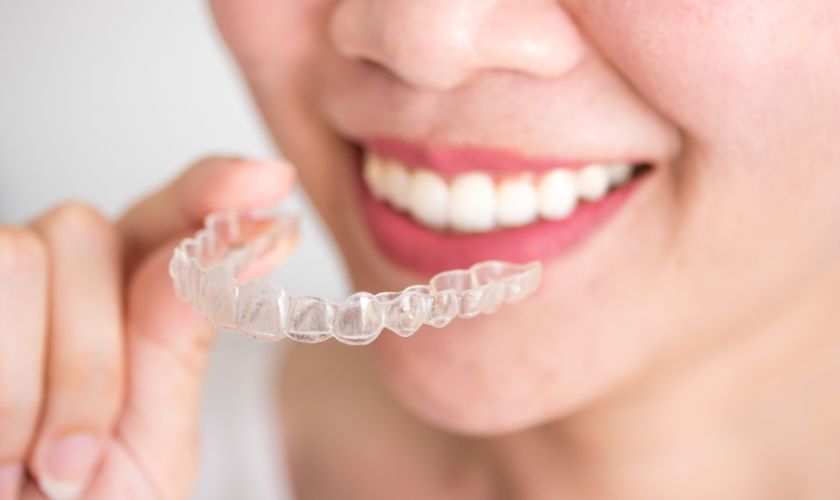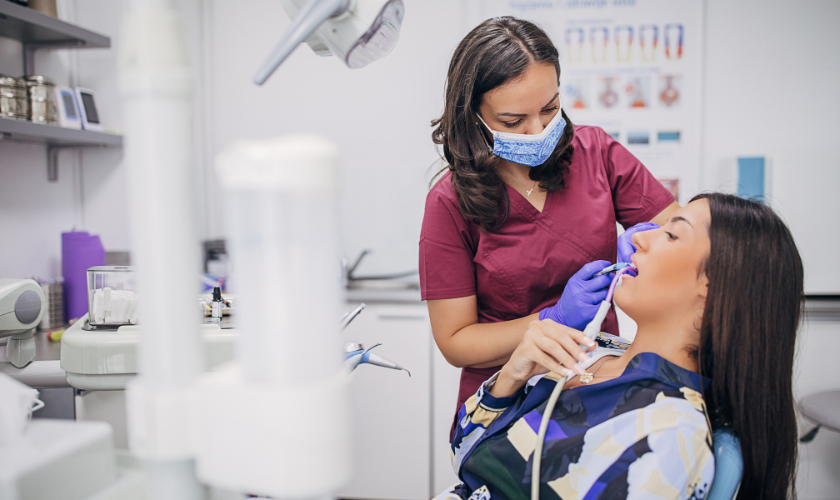Clear aligners offer a discreet and effective way to straighten teeth. Unlike traditional braces, they are removable and virtually invisible. This flexibility allows for easier eating and oral hygiene.
However, proper cleaning of your clear aligners is crucial. Regular maintenance prevents bacteria buildup and unpleasant odors, promoting better oral health. Additionally, clean aligners help ensure your treatment progresses as planned. Neglecting their care can lead to complications, delaying your journey to a perfect smile.
This guide will explore cleaning your clear aligners effectively and maintaining their longevity.
Understanding Clear Aligners
Clear aligners are custom-made dental devices designed to shift teeth into their desired positions gradually. They are made from durable, BPA-free plastic, making them popular among adults and teens seeking orthodontic treatment. Unlike metal braces, aligners are removable, allowing easy cleaning and maintenance.
The process begins with a thorough dental assessment. Your orthodontist will take impressions or scans of your teeth. Using these, they will create a series of aligners that fit snugly over your teeth.
Each aligner is typically worn for one to two weeks, gently moving your teeth closer to their final position. The materials used in aligners are designed to be strong yet comfortable, minimizing irritation to your gums and cheeks. This combination of comfort and effectiveness makes clear aligners an appealing option for many individuals.
Why is Cleaning Essential?
Cleaning your clear aligners is vital for several reasons. First, inadequate cleaning can lead to bacteria buildup. Bacteria thrive in the moist environment of your mouth and can accumulate on your aligners. This buildup can lead to unpleasant odors and even contribute to oral health issues like gum disease.
Second, dirty aligners can stain over time. Food particles, plaque, and colored beverages can leave marks on your aligners, making them less aesthetically pleasing. These stains can also transfer to your teeth, affecting their appearance and health.
Moreover, unclean aligners can impact the effectiveness of your treatment. If your aligners are not clear and debris-free, they may not fit properly. A poor fit can hinder their ability to move your teeth as planned, potentially prolonging your treatment timeline. This can lead to frustration and increased costs.
Finally, maintaining proper hygiene while using clear aligners supports overall oral health. Regularly cleaning your aligners ensures you are not inadvertently introducing harmful bacteria into your mouth. Prioritizing cleanliness will help you achieve your desired smile while keeping your mouth healthy.
Best Practices for Cleaning Clear Aligners
Daily Cleaning Routine
To clean your clear aligners, establish a daily cleaning routine. You should clean your aligners every morning and evening. This frequency helps remove any buildup from food particles and saliva. Use a soft toothbrush and lukewarm water to scrub your aligners gently. Avoid using toothpaste, as it can be abrasive and scratch the surface.
Products to Use
Select safe cleaning solutions for your aligners. Aligner cleaning tablets are effective and easy to use. Simply dissolve them in water and soak your aligners according to the package instructions. Mild soap can also work well for daily cleaning. Avoid harsh chemicals like bleach, which can damage your aligners. Hot water is another no-no, as it can warp the plastic.
Step-by-Step Cleaning Instructions
- Rinse: Start by rinsing your aligners under lukewarm water. This helps remove any loose debris.
- Brush: Using a soft toothbrush, gently scrub the aligners. Focus on areas where plaque may accumulate, such as the edges.
- Soak: Soak your aligners in a cleaning solution or a mixture of mild soap and lukewarm water for a deeper clean. Follow the product instructions for soaking time.
- Rinse Again: After soaking, rinse the aligners thoroughly under lukewarm water to remove any soap or cleaning solution.
- Dry: Pat your aligners dry with a clean, lint-free cloth before putting them back in your mouth.
This step-by-step process will help you maintain your aligners’ clarity and hygiene.
Tips for Maintaining Freshness
How to Prevent Bad Odors?
To prevent bad odors, rinse your aligners regularly, especially after eating. Avoid eating while wearing your aligners, as food particles can become trapped.
Storing Aligners Properly When Not in Use
Always store your aligners in their case when not in use. This protects them from dust and bacteria. Make sure the case is clean before placing your aligners inside.
Importance of Regular Dental Check-Ups
Regular dental check-ups are essential during your treatment. Your orthodontist can monitor your progress and guide you on maintaining your aligners. They can also catch potential issues early, ensuring a smoother treatment process.
Common Mistakes to Avoid
List of Common Cleaning Pitfalls
- Using Toothpaste: Many people mistakenly use toothpaste on their aligners. It can scratch and dull the surface.
- Soaking Too Long: Oversoaking in cleaning solutions can warp your aligners.
- Neglecting Daily Cleaning: Skipping daily cleaning can lead to bacteria buildup and odors.
How to Correct Them?
To avoid these pitfalls, always use a soft brush without toothpaste. Follow the recommended soaking times, and never skip your cleaning routine. By being mindful of these common mistakes, you can ensure your aligners remain in great condition.
Cleaning your clear aligners is essential for effective treatment and maintaining oral health. Regular cleaning prevents bacteria buildup, odors, and stains, helping you achieve your desired smile.
By following best practices, such as daily cleaning and proper storage, you can ensure your aligners stay in excellent condition. Prioritize cleanliness to maximize your clear aligner experience and enjoy a healthier smile.



